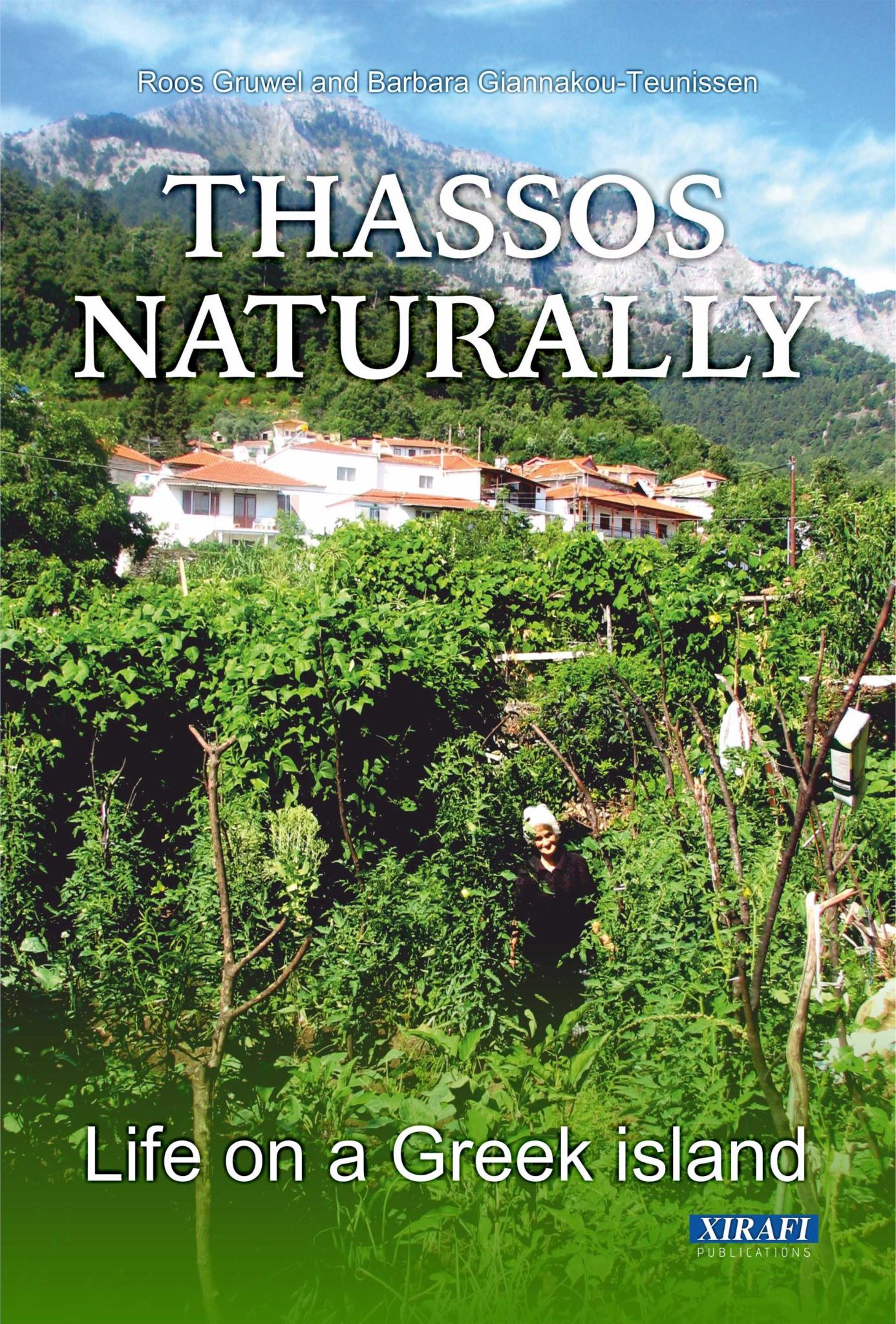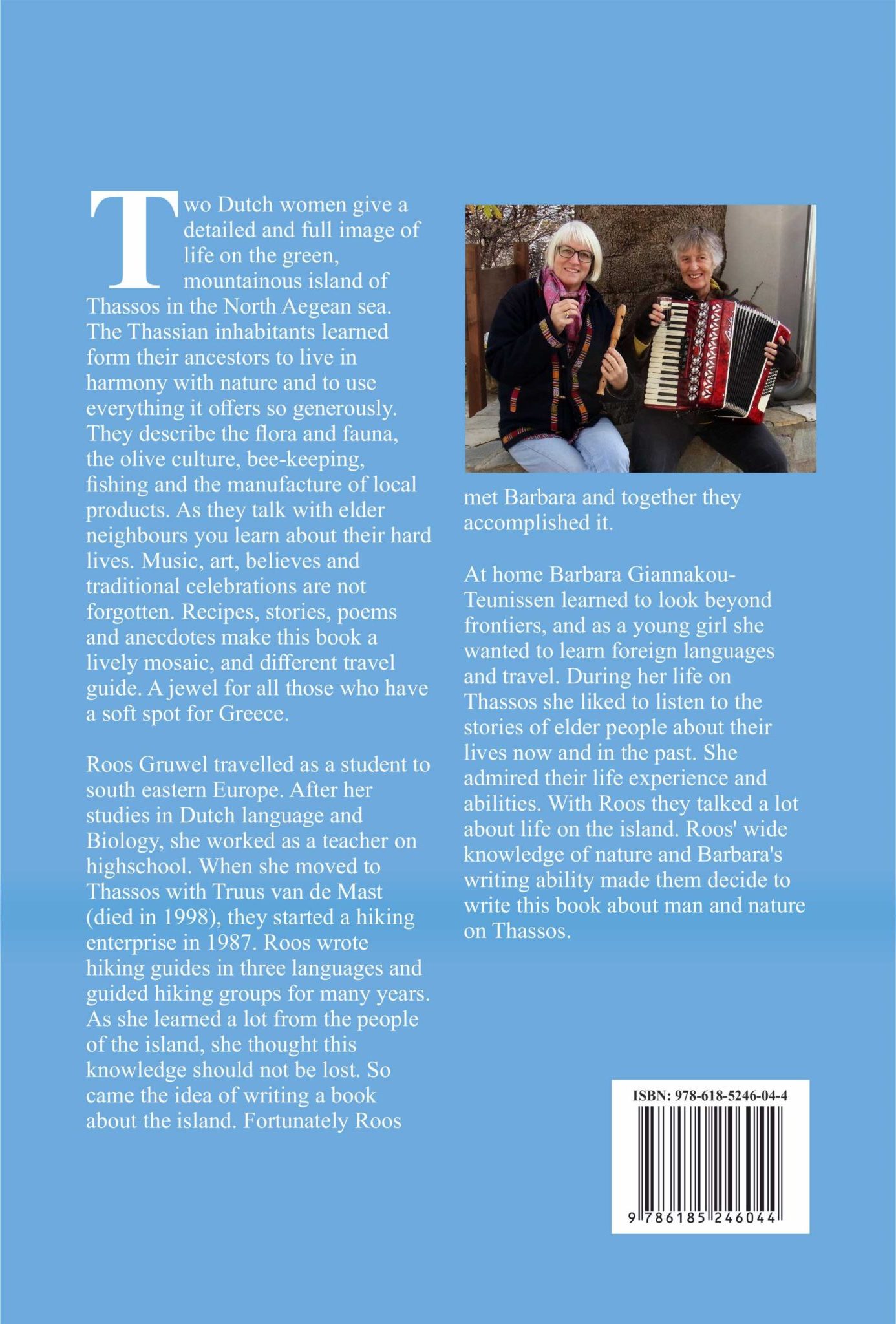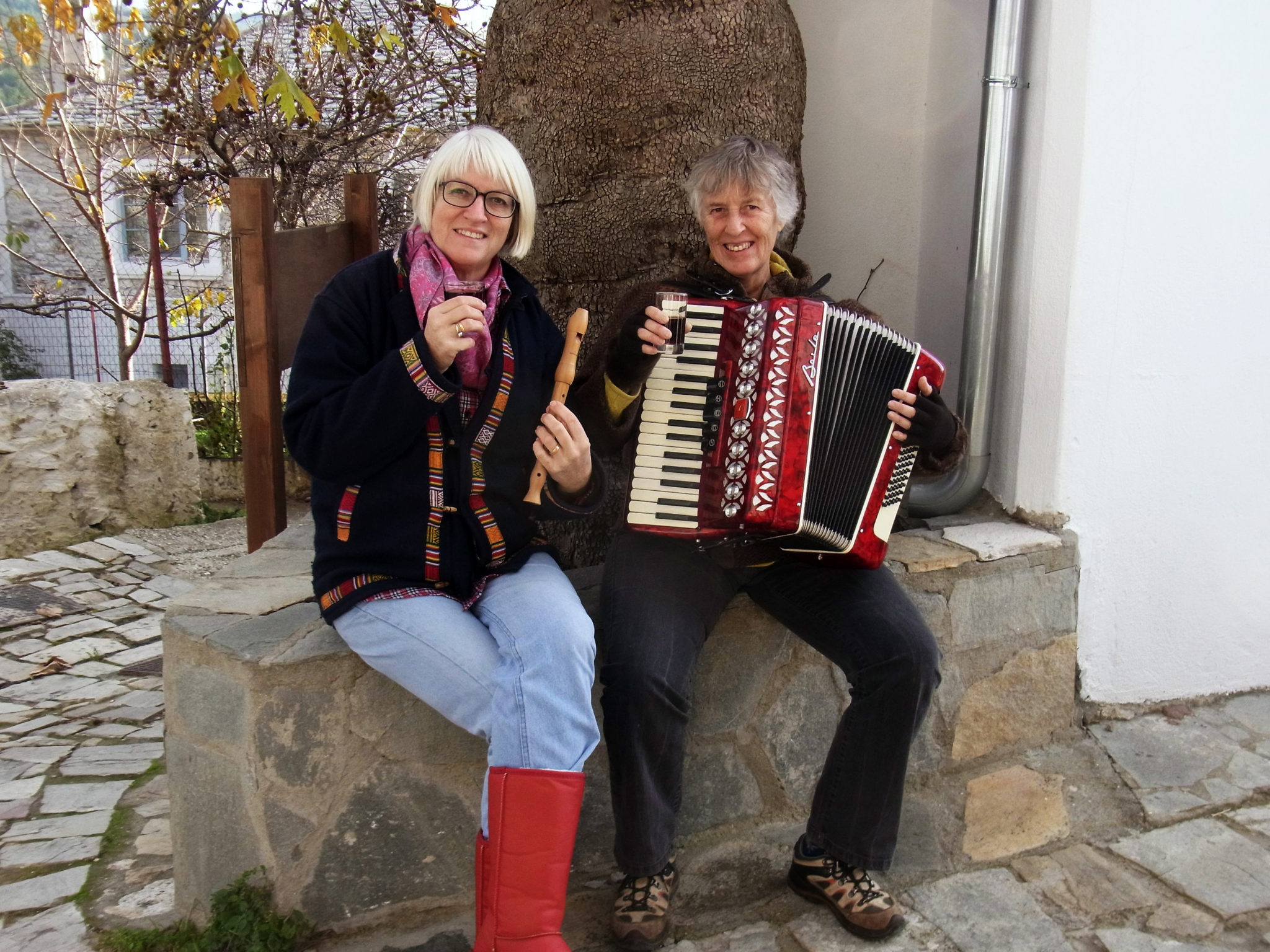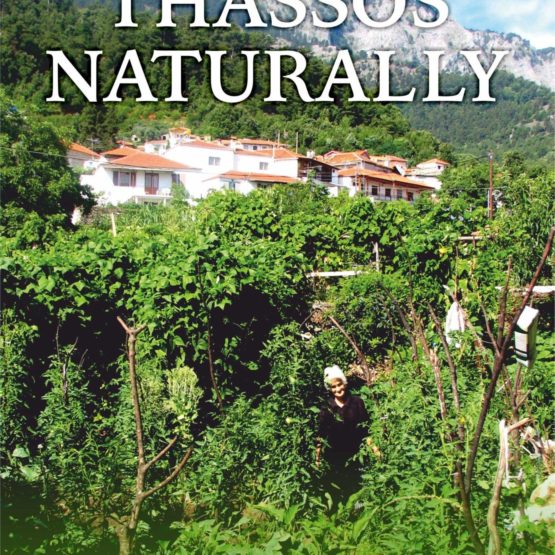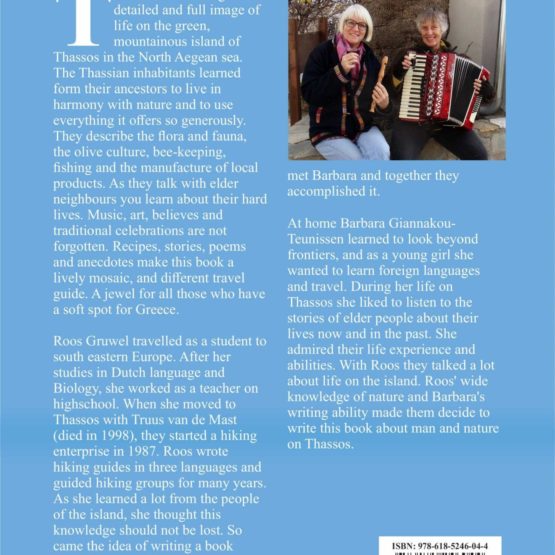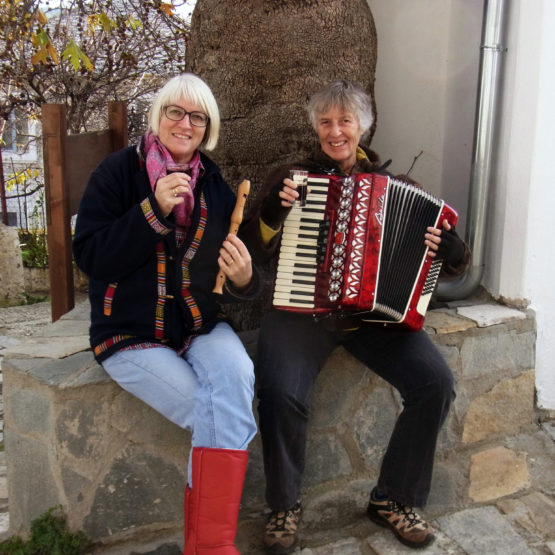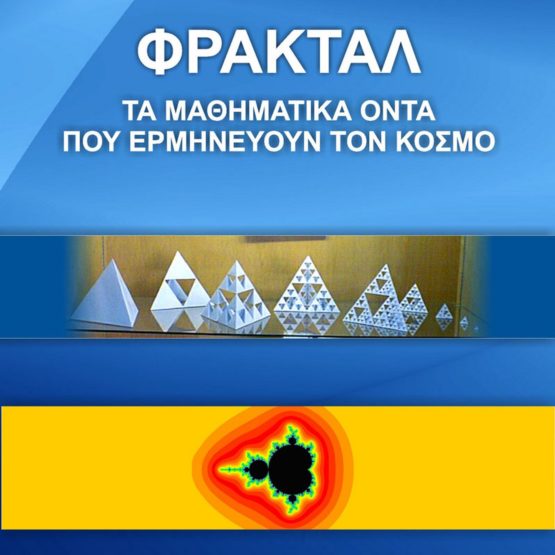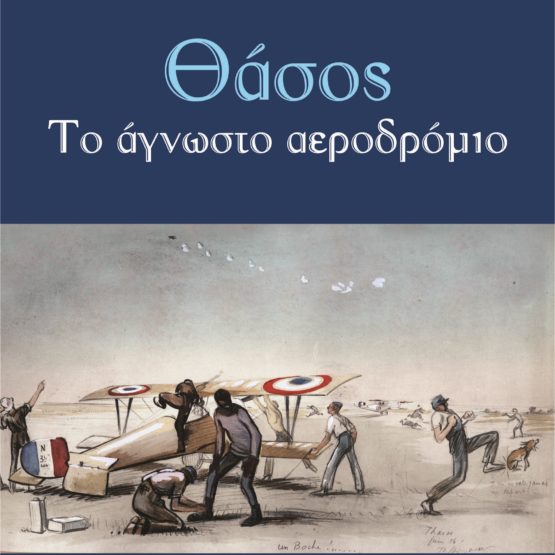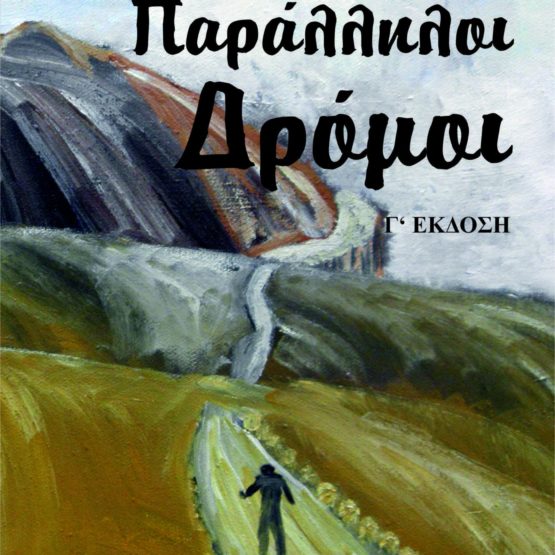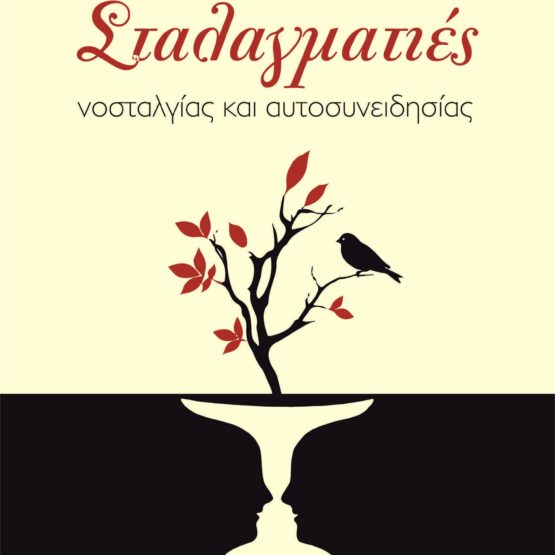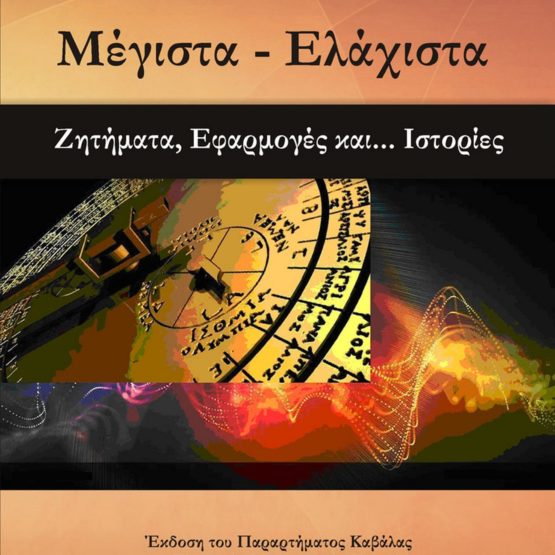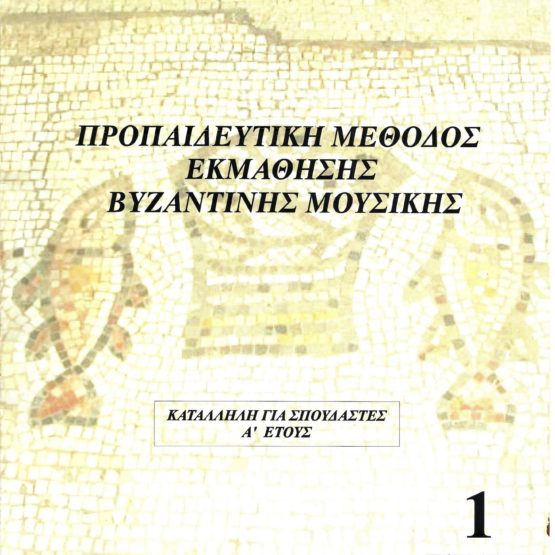- Δεν μπορείτε να προσθέσετε "Ο Εθνομάρτυρας Μητροπολίτης Ελευθερουπόλεως Γερμανός Σακελλαρίδης Μακεδονομάχος (1874-1917)" στο καλάθι γιατί δεν υπάρχει απόθεμα αυτού του προϊόντος.
Thassos Naturally. Life on a Greek island (ξενόγλωσσο)
19,50€ Original price was: 19,50€.15,00€Η τρέχουσα τιμή είναι: 15,00€. (με ΦΠΑ)
Δύο Ολλανδέζες γυναίκες δίνουν μια λεπτομερή και πλήρη εικόνα της ζωής, στο πράσινο ορεινό νησί της Θάσου στο βόρειο Αιγαίο πέλαγος. Οι κάτοικοι της Θάσου έμαθαν από τους προγόνους τους να ζούνε σε αρμονία με τη φύση και να χρησιμοποιούν ότι αυτή προσφέρει απλόχερα. Περιγράφουν τη χλωρίδα και την πανίδα, την κουλτούρα της ελιάς, τη μελισσοκομία, το ψάρεμα και την παραγωγή τοπικών προϊόντων. Καθώς συζητούν με γηραιότερους γείτονες, μαθαίνουν για τις γεμάτες δυσκολίες ζωές τους. Η μουσική, η τέχνη, οι πεποιθήσεις και τα παραδοσιακά πανηγύρια δεν ξεχνιούνται. Οι συνταγές, οι ιστορίες, τα ποιήματα και τα ανέκδοτα συνθέτουν σε αυτό το βιβλίο ένα ”ζωντανό” μωσαϊκό και έναν ξεχωριστό τουριστικό οδηγό.
Δύο Ολλανδέζες γυναίκες δίνουν μια λεπτομερή και πλήρη εικόνα της ζωής, στο πράσινο ορεινό νησί της Θάσου στο βόρειο Αιγαίο πέλαγος. Οι κάτοικοι της Θάσου έμαθαν από τους προγόνους τους να ζούνε σε αρμονία με τη φύση και να χρησιμοποιούν ότι αυτή προσφέρει απλόχερα. Περιγράφουν τη χλωρίδα και την πανίδα, την κουλτούρα της ελιάς, τη μελισσοκομία, το ψάρεμα και την παραγωγή τοπικών προϊόντων. Καθώς συζητούν με γηραιότερους γείτονες, μαθαίνουν για τις γεμάτες δυσκολίες ζωές τους. Η μουσική, η τέχνη, οι πεποιθήσεις και τα παραδοσιακά πανηγύρια δεν ξεχνιούνται. Οι συνταγές, οι ιστορίες, τα ποιήματα και τα ανέκδοτα συνθέτουν σε αυτό το βιβλίο ένα ”ζωντανό” μωσαϊκό και έναν ξεχωριστό τουριστικό οδηγό. Ένα στολίδι για όλους όσους έχουν μια αδυναμία στην Ελλάδα.
Η Roos Gruwel ταξίδεψε στη βορειοανατολική Ευρώπη σαν φοιτήτρια. Μετά την ολοκλήρωση των σπουδών της στην Ολλανδική γλώσσα και στη Βιολογία, εργάστηκε ως δασκάλα στη τριτοβάθμια εκπαίδευση. Όταν μετακόμισε στη Θάσο το 1987 μαζί με την Truus van de Mast (απεβίωσε το 1998) ξεκίνησαν έναν ορειβατικό σύλλογο. Η Roos έγραψε ορειβατικούς οδηγούς σε τρεις γλώσσες και ξεναγούσε ορειβατικές ομάδες για πολλά χρόνια. Καθώς έμαθε πολλά από τους ντόπιους του νησιού, σκέφτηκε ότι αυτή η γνώση δεν πρέπει να πάει χαμένη. Έτσι ήρθε η ιδέα να γράψει ένα βιβλίο για το νησί. Ευτυχώς η Roos γνώρισε την Βαρβάρα και μαζί το υλοποίησαν.
Από το σπίτι η Μπάρμπαρα Γιαννάκου – Teunissen έμαθε να κοιτάζει πέρα από τα σύνορα και από μικρή ήθελε να μάθει ξένες γλώσσες και να ταξιδέψει. Στη διάρκεια της ζωής της στη Θάσο της άρεσε να ακούει τις ιστορίες από τους γηραιότερους για τη ζωή τους στο παρόν αλλά και στο παρελθόν. Θαύμαζε την εμπειρία στη ζωή και τις ικανότητές τους. Με την Roos μιλούσαν πολύ για τη ζωή στο νησί. Η ευρεία γνώση της Roos για τη φύση και η δεξιότητα στη γραφή της Μπάρμπαρα τις έκαναν να αποφασίσουν να γράψουν αυτό το βιβλίο για τον άνθρωπο και τη φύση στη Θάσο.
| ISBN | 978-618-5246-04-4 |
|---|---|
| Αριθμός σελίδων | 306 |
| Διάσταση βιβλίου | 16x24cm |
Σχετικά προϊόντα
Φράκταλ. Τα μαθηματικά όντα που ερμηνεύουν τον κόσμο
Μέγιστα – ελάχιστα. Ζητήματα, εφαρμογές και …ιστορίες
12,99€ (με ΦΠΑ)

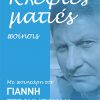
10,00€ (με ΦΠΑ)

